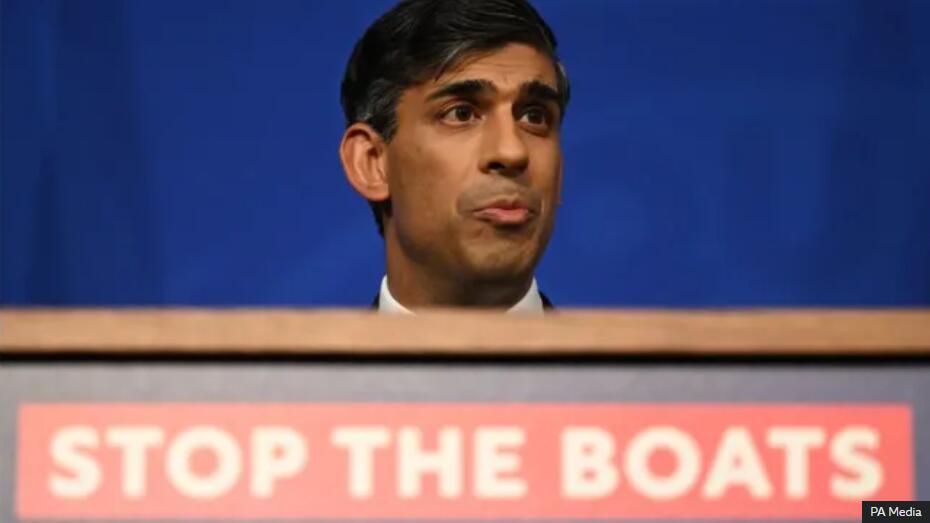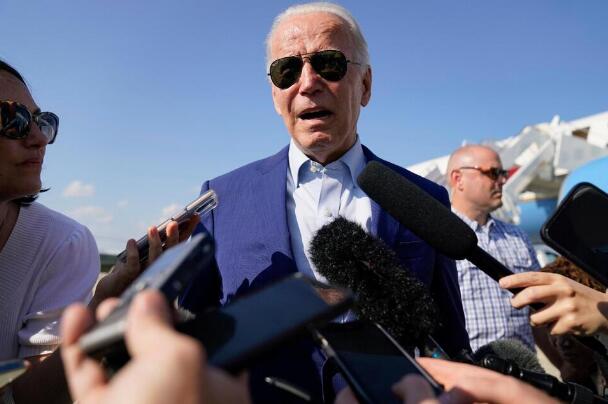Tory MPs are coming under pressure from ministers to back the PM’s Rwanda plan.
Rishi Sunak hopes sending migrants to the African nation for processing and potential resettlement will deter people from crossing the Channel in small boats.
He has introduced emergency legislation aimed at overcoming legal issues which have so far delayed the scheme.
However, MPs from across his party have concerns about the approach and will be examining the bill over the weekend.
Last month, Supreme Court judges blocked the government’s original plan, declaring that Rwanda was not a safe country and that the asylum system was flawed.
The government has now introduced the Safety of Rwanda Bill which requires judges to treat Rwanda as safe. It also gives ministers powers to disregard parts of the Human Rights Act, and prevents judges from taking into account other international laws.
- The main Tory factions jostling for influence
- UK paid Rwanda an extra £100m for asylum deal
- Can the new Rwanda bill work and what could stop it?
Government ministers have been putting in calls to persuade MPs to vote for the bill on Tuesday, when it gets its second reading in the House of Commons.
This stage of the process is usually reserved for debating the general points of the proposed law.
MPs with concerns are likely to wait until later stages before trying to make changes to the draft legislation.
But Mr Sunak is keen to avoid a defeat at the hands of Tory rebels and the Labour Party on a key part of his flagship “stop the boats” policy.
Concerned Tory MPs are being offered meetings with government ministers.
Those who have human rights concerns are being told not all of the Human Rights Act is being disapplied by the proposed law and that asylum seekers facing serious irreversible harm could still challenge a decision to be deported, based on their individual cases.
However, MPs on the right of the party are being reassured that such legal challenges would be unlikely to succeed.
Both former Home Secretary Suella Braverman and former immigration minister Robert Jenrick have said Mr Sunak’s plan won’t work.
Mr Jenrick resigned his ministerial job shortly after the Safety of Rwanda Bill was published arguing that it didn’t go far enough.
In an article in Saturday’s Daily Telegraph, Mr Jenrick says he does not believe the Rwanda law will work, and calls for the UK to “extricate” itself from “complex international frameworks” and “outdated treaties”.
The bill in its current form would still allow migrants to challenge their removal to Rwanda, and would not exclude individual appeals from the European Court of Human Rights, he says.
“The idea, therefore, that this Bill will guarantee all those arriving are detained and swiftly removed is for the birds,” he wrote.
‘Dogs are cats’
The European Research Group, an influential body of pro-Brexit MPs, have said they are studying the bill “forensically” but some are concerned the bill still allows for individuals to appeal a decision to deport them to Rwanda.
On the other side of the party, the One Nation group of MPs are taking legal advice from former Solicitor General Lord Garnier.
He told BBC Radio 4’s PM programme the legislation was “political nonsense and legal nonsense”.
“It’s trying to define things when there is no evidence for that being the case. It’s rather like a bill that has decided that all dogs are cats.”
Lord Garnier sits in the House of Lords, where the bill is also likely to run into difficulties.
Speaking on Wednesday, Rwandan Foreign Minister Vincent Biruta said: “It has always been important to both Rwanda and the UK that our rule of law partnership meets the highest standards of international law.”
He added that “without lawful behaviour by the UK” Rwanda would not be able to continue with the agreement.
Former Brexit Secretary David Davis told BBC Radio 4’s The Week in Westminster he supported the policy, saying: “It’s expensive, but the truth is it won’t be expensive if it works.
“I don’t know whether it’ll work… but I think we have to try it.”
He also suggested some of criticism of the policy “comes out of leadership manoeuvrings”.
He warned his colleagues not to put their “leadership ambitions” ahead of the interests of the Conservative Party or the country.



